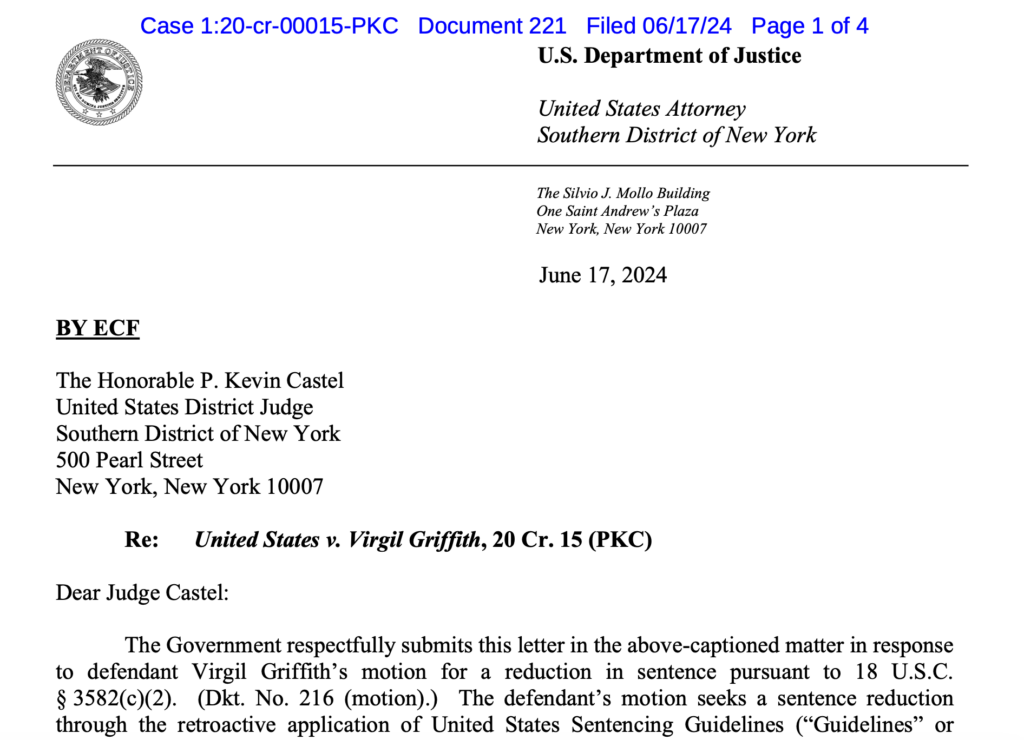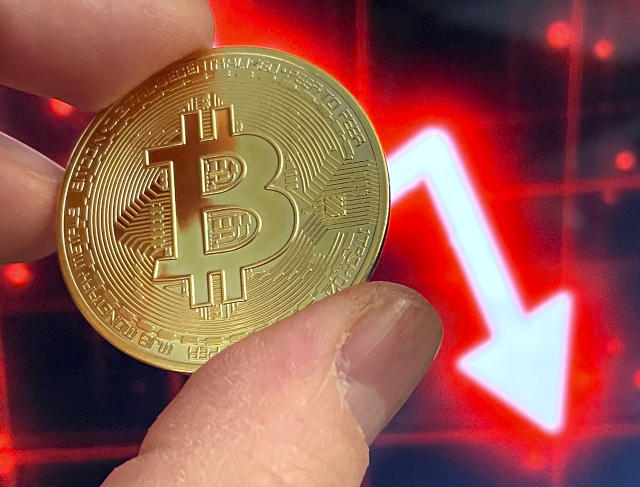The United States Justice Department has issued a letter opposing the motion of former Ethereum developer Virgil Griffith to reduce his 2022 sentence for violating sanctions on North Korea

Virgil Griffith was sentenced to 63 months in prison in April 2022 for violating U.S. sanctions on North Korea by a magistrate.
U.S. Attorney Damian Williams argued in a June 17 filing in the U.S. District Court for the Southern District of New York that a judge should deny Griffith’s motion to reduce his sentence to as little as 51 months. In April 2022, a judge sentenced the former Ethereum developer to 63 months in prison and a $100,000 fine. However, his anticipated release date is January 2026, as he was incarcerated before the sentencing hearing.
Williams stated that Griffith elected to circumvent the sanctions of his nation to render services to a hostile foreign power. These services were specifically designed to promote and instruct the utilization of blockchain technology and cryptocurrency to circumvent sanctions imposed by the United States and the United Nations.
“Griffith acted despite being aware that North Korea was committing atrocities against its people and had made threats against the United States, including nuclear capabilities.”

In 2019, Griffith delivered numerous presentations at a cryptocurrency and blockchain conference in Pyongyang, the capital city of North Korea. His topics included the potential for the country to employ cryptocurrency to circumvent sanctions and facilitate money laundering.
The Ethereum developer’s attorneys contended in court that his preoccupation with the reclusive nation was the result of obsessive-compulsive personality disorder and narcissistic personality disorder.
Petty Larceny Allegations While Incarcerated
During Griffith’s tenure at the Federal Correctional Institution, Milan in Michigan, authorities with the Bureau of Prisons had disciplined him “on numerous occasions,” according to prosecutors. They cited reports from prison officials that the former Ethereum developer “attempted to steal soap and tea” and committed other minor infractions while behind bars.
“[T]he defendant’s recent conduct [doesn’t] demonstrate any basis for additional leniency […] At the very least, these incidents do not suggest a newfound respect for government rules and regulations.”
Griffith’s legal team requested that the court modify his 63-month sentence in April by changes to U.S. sentencing guidelines that occurred after his conviction. Griffith may be eligible for release in January 2025 if the recommended sentence range for his conviction is reduced from 63 to 78 months to 51 to 63 months under the new guidelines. This reduction could conceivably reduce his time in prison by up to a year.
Griffith stated during his April 2022 sentencing hearing that he had been “cured” of his “obsession with North Korea” as a result of the example set by sanctions on Russia in response to the country’s attack on Ukraine. At the time, Judge Kevin Castel stated that Griffth lacked ideology and would likely “play off both sides, as long as he is at the center.”
Griffith’s legal team is anticipated to submit a response to the U.S. government’s letter within the next 14 days. Griffith has been restricted from engaging in transactions involving commodities, software, or technology under U.S. export regulations until 2032, regardless of the criminal case’s outcome, by the U.S. Department of Commerce, which has already imposed a 10-year export privilege prohibition on him.



